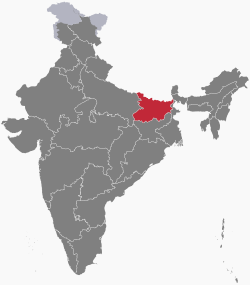
 |
|---|
Elections in the Indian state of Bihar, are conducted in accordance with the Constitution of India. The Assembly of Bihar creates laws regarding the conduct of local body elections unilaterally while any changes by the state legislature to the conduct of state level elections need to be approved by the Parliament of India.
Contents
- Bihar electoral system
- National level representation
- State level representation
- History of elections in Bihar
- Assembly election
- 2025 Municipal bypolls and introduction of mobile voting
- Lok Sabha Elections
- After 2000
- History of politics
- Electoral process
- Pre elections
- Voting day
- Post elections
- Voter registration
- Absentee voting
- Further reading
- See also
- References
- External links
Elections to the Lok Sabha, also termed as General Elections, are typically held every 5 years after the central government has completed its term. It may also be held before the completion of term if parliament is dissolved early. Similarly, elections to Legislative Assembly are conducted every five years. Last Lok Sabha election was held in 2024 and Legislative Assembly election was held in 2025. Elections to the Rajya Sabha are held at regular interval with one third of the members retiring in a staggered manner. Members of Legislative Assembly elect the state's representative to Rajya Sabha.
